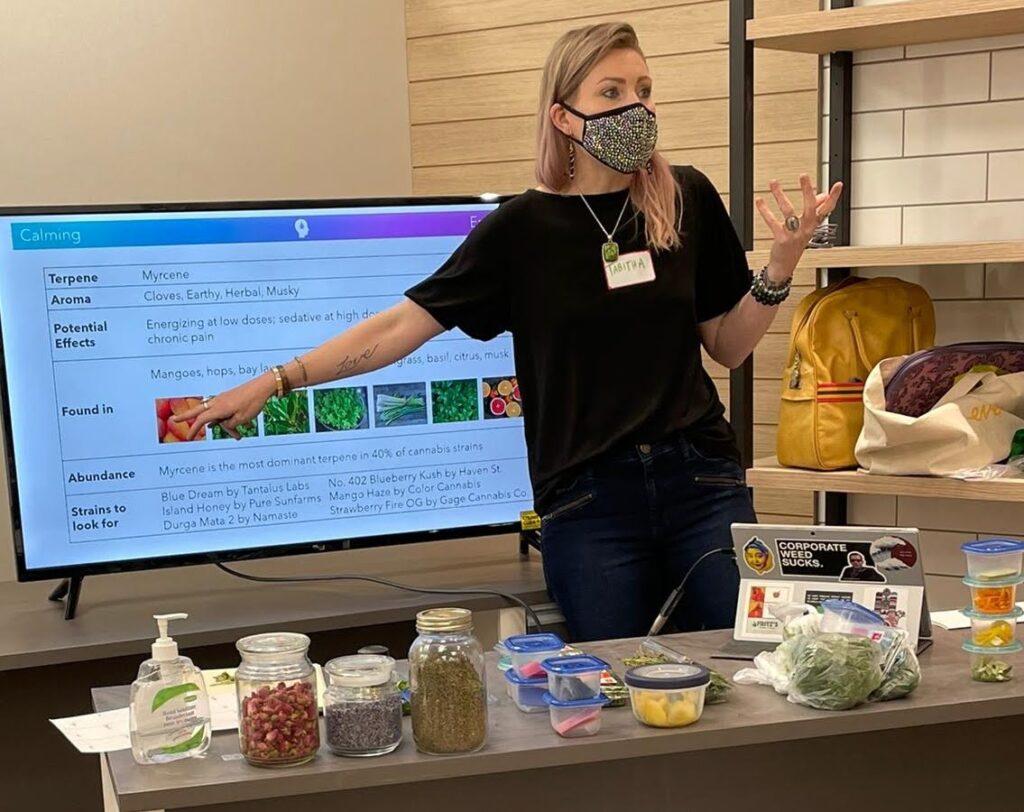
How to get hired as a Budtender in Canada
As of October 2022, data company Cannabis Benchmarks states that licensed cannabis stores for adult use are increasing across Canada, with over 3,290 stores coast to coast.
That’s a lot of opportunity for job seekers looking to leverage their existing retail experience for a new industry, and for those curious about entry-level positions in the burgeoning cannabis industry.
But before you leave your current job, know that most budtender jobs require a basic knowledge of cannabis, and all require certification that shows you understand the basics of cannabis and the laws that regulate it.
Several supplemental courses have been developed to educate about cannabis. Here’s what you can expect from them.
Get your provincial or territory certification
The CannSell standard certification covers cannabis basics, the federal and provincial guidelines, general compliance issues, and the potential risks and harms associated with cannabis use. They also offer an expert course on cannabis history, genetics, cultivation, packaging and how cannabinoids work in the human body.
According to Co-CEOs Jonathan Carley and Andy Deonarine, the number of students taking the CannSell compulsory course in Ontario has tripled in the last year to more than 26,000.
Since acquiring the course from Lift & Co. about two years ago, they say they’ve fixed bugs and payment processes on the online delivery platform, and updated evolving regulations.
“Our goal is to provide the best user experience for the training we provide, keep it fresh and bridge the gap between brands and budtenders,” Deonarine said in a phone interview.

“Ultimately, there are many other companies that are entering the space or have been around for some time, but there is only one that is a sole AGCO mandatory training program.”
PEI and Nova Scotia also use CanSell, but otherwise each province has its own requirements. In Alberta, the training program for budtenders is called SellSafe, and Saskatchewan uses the CannaSell SK Responsible Cannabis Sales Training program. In BC, Responsible Service hosts BC Selling It Right.
Manitoba’s Liquor, Gaming, & Cannabis Authority requires Smart Choices Cannabis Retail Certification before work begins. Quebec has the Société Québécoise du Cannabis training program. Newfoundland and Labrador Liquor Corporation provides training through SkillsPass.
For those looking for budtender gigs in the north, the North West Territories offer in-house staff training. The Yukon offers a Be A Responsible Server Cannabis (BARS-C) program and Nunavut uses its own training program for cannabis retail workers.
Educational add-ons will set you apart
Beyond provincial requirements, budtenders can pursue additional training to gain more practical niche knowledge. Tabitha Fritz started her LevelUp online course after developing budtender training programs in-store and seeing an opportunity to help employees better understand cannabis.
“You can present someone with facts and say, here’s all the facts about cannabis, cannabinoids, terpenes, your endocannabinoid system, and concentrates,” she explained.
“But that doesn’t necessarily mean that anyone will digest it and internalize it. [This course] takes the learner on a journey through cannabis, how it works with our bodies and why it is so unique to each consumer.”

There are many non-mandatory online courses such as educational modules from CannaReps, Cannabis Training Canada, the Cannabis Institute of Canada, and others available online. Many universities and colleges across Canada also offer degrees, courses and certifications in all aspects of the cannabis industry, from science to engineering to hospitality.
But these courses come at a price, and you may find they are not worth it before hiring. Consider looking at a program once you are hired and look for employees who can attest that they have taken their skills to the next level.
After hiring, you can also ask your employer to coordinate and invest in additional training or investigate group rates.
Don’t forget customer service and soft skills
Krista Raymer, co-founder of retail consultancy Vetrina Group, said budtender training and education will continue to evolve in the years to come. While cannabis concepts and products are a set of skills, she said soft skills should emphasize budtender training.
“One of the biggest trends I’d like to see continue to develop is that we focus less on transactions and more on the ability to sell and share product information that is relevant to the customer.”
– Krista Raymer, co-founder of the Vetrina Group
Rather than focusing on one big sale, Raymer says conversations should be broader, deeper, and more focused on the broader needs a buyer is trying to address.
“Our budtenders can enhance that experience,” she said. “There is a big gap in the industry right now in this area and that’s because it’s really hard to implement and it takes a lot of time and a lot of training. And since we’ve seen a really high turnover rate among budtenders, it’s difficult to make this type of investment.”
Talk to your local budtenders
According to Alex Pollard, one of the founders of union organizer United Weed Workers, some of the most valuable training for budtenders comes from hands-on product workshops with brand reps and trying the products yourself.
Some stores offer product discounts to employees, but it can get expensive for budtenders, who Payscale says make an average of $16.03/hour.
“Each store and brand tends to do things their own way, but there’s something really special about stores that encourage brand representatives and territory managers to interact with budtenders and nurture those relationships,” says Pollard.
Before signing up for a course, talk to existing budtenders to find out what they wish they knew before getting into the industry and whether or not a course was worth the money.
And remember, employers should invest in their employees – always ask your employer to coordinate training on your behalf.
With files by Ashley Keenan.
By submitting this form, you are subscribing to Leafly news and promotional emails and agreeing to Leafly’s Terms of Service and Privacy Policy. You can unsubscribe from Leafly email communications at any time.

Post a comment: